A lead hook is a strategic yet powerful punch you can add to your stockpile of techniques. Similar to a cross, you leverage the momentum built with a windup or a 'pre-load' before throwing your punch. Although, a hook punch is more impactful than a straight punch because the swinging motion of a hook means the power comes from the weight of your arm. Unlike a straight punch where you don't use the body's weight as much.
Technique Overview For The Lead Hook Punch
- Knees bent
- A slight twist to ‘pre-load’
- Lift elbow
- Unwind body
- Keep elbow in line with hand
- Thumb can be up or down
- Other hand guards face
In this short video, Gabriel Varga breaks down the steps to throw a perfect lead hook and describes the situational benefits of using a hook over a jab. He also demonstrates the body mechanics and proper technique that are critical for gaining power. Take a look, learn the basics, or build upon your current technique.
Gabriel began his pro kickboxing career when he was 20 and fought his way to become a six-time Pro World Champion. He fights wearing the T3 Boxing Gloves and the popular Men’s VIP T-Shirt and Men’s Layered Performance Shorts.
Tips to Improve Your Lead Hook Punch
It takes repetition and practice to improve your form and land solid punches. If you’re new to boxing, getting the fundamentals down is key before focusing on the speed and power of the punch. Also, keeping the following tips in mind can help you maintain your form, particularly when faced with fatigue during a workout or sparring session. Regardless of what level of fighter you are, it never hurts to brush up on the basics as you continuously improve.
Lead with the Core
One of the most common mistakes when throwing a lead hook punch is an imbalance in weight distribution. The impact of the punch comes from the core and moves into the upper body, as with other boxing punches. Therefore, rather than throw the hook as an arm punch only, it’s important to put weight behind it so it lands with power.
Close the Gap
When sparring with a partner, you’ll want to close the distance so your hook punch doesn’t fall flat. Since the lead hook punch is quick and short, it’s more effective when you close the gap between you and the opposition. Otherwise, your sparring partner has more time to prepare and defend the punch.
Minimize the Wind Up
The adrenaline that comes with boxing can lead to overpowering punches and increasingly sloppy form. Often, the wind up can become exaggerated, which makes it easier for an opponent to block. Maintain a tight hook driven by your core rather than aiming for a knockout punch every time. By minimizing the wind up, you increase the element of surprise and deliver quicker, weightier punches against your opponent.
Hold Your Guard
In addition to perfecting your punches, it’s equally important to keep your guard up. When throwing a lead hook, it’s common for beginners to drop their guard, leaving the jaw and temple vulnerable. Even when doing solo bag work, make sure your face is protected with your non-throwing hand since punching power is only one factor. Boxing also requires speed, agility, and the ability to anticipate and defend during a fight.
To motivate you to perfect your proper lead hook, here are some greats with their signature hook punches:
Floyd Patterson - This heavyweight champion is renowned for his gazelle hook, which is a leaping left hook thrown in an upward motion.
Manny Pacquiao - While Pacquiao was known for his speed, some of his combo punches ended with a lethal right hook that his coach, Freddie Roach, dubbed the "Manila Ice." That's because Pacquiao trained and eventually perfected his right hook to be just as powerful as his left hook. Add his speed and the opponent would not see this power punch coming.
Joe Frazier - Frazier is another boxer with a powerful left hook. Joe Frazier often used his left hook to render a knockout punch to his opponent. Through this powerful punch, it's no wonder his name is just as renowned as Muhammad Ali's.
Tommy Morrison - Boxing enthusiasts rank Tommy Morrison's left hook second to Joe Frazier. This power punch was first displayed during his match with Harvey Terrell and has helped him sustain a whopping 42 knockouts throughout his career.
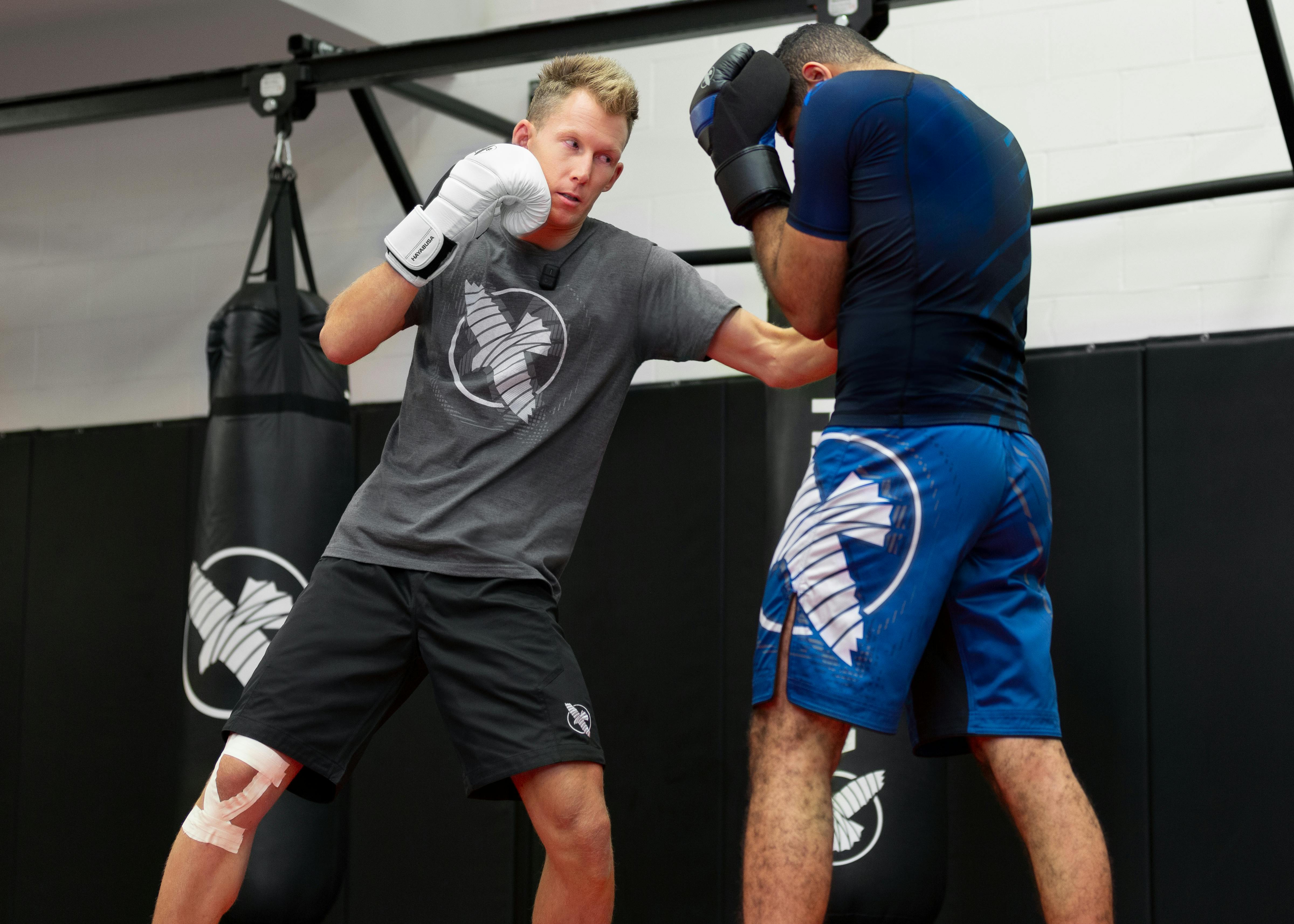
Training with the Right Boxing Equipment
In addition to improving your form, it’s also important to have the appropriate weight and size of boxing gloves for your training. When the fit of boxing gloves is too heavy (or too light), it can throw off your weight distribution and restrict the power of your punches.
There are several factors when deciding the best boxing gloves for you. First, decide how you’ll be using the boxing gloves most to determine the weight you’ll need. For instance, a lighter glove weight, ranging from 10-14 oz., is recommended for heavy bag or pad work.
Whereas, a heavier option is recommended for sparring gloves. The additional padding of 16-18-oz. gloves will absorb more force and help soften an opponent’s blows.
Then, consider size, type, and material quality. Hayabusa boxing gloves buying guide will take you through every aspect of narrowing down the right fit for you. It’ll help you feel more confident as a fighter and ensure your hands, knuckles, and wrists are well-protected during your workouts. And it identifies differences between leather boxing gloves and those made out of vinyl and other materials.
Regardless of whether you’re boxing, a muay thai or MMA fighter, or simply adding punches to your cardio routine, you’ll want to invest in Hayabusa boxing gloves and fighting equipment.
Hayabusa T3D Boxing Gloves
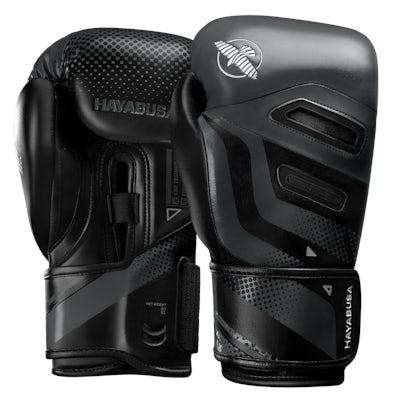
Hayabusa T3 Boxing Gloves
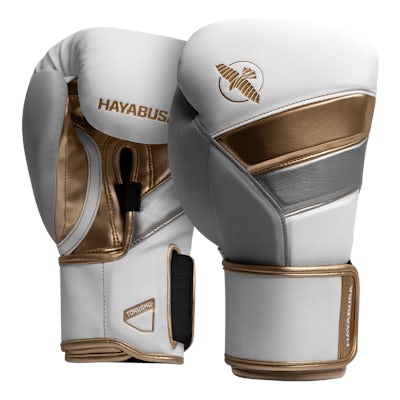
Hayabusa T3 LX Boxing Gloves

T3 Kanpeki Boxing Gloves
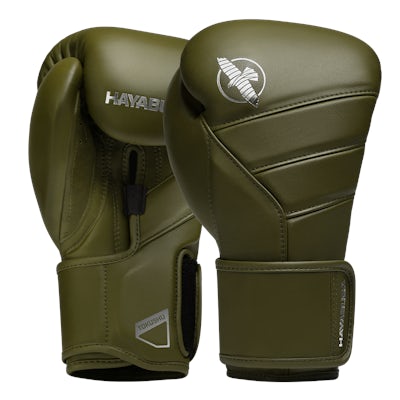
Nothing Beats the Basics
Having the proper form and pro boxing gloves are essential for safety and it keeps fighting fun. Plus, learning the basic movements helps beginners get comfortable with the punches before going full force. And for seasoned fighters, it’s always good to have a refresher and focus on form for bag work and sparring with a partner.
About the Series
Missed the previous video in the series? Learn to throw a cross here. The Striking Basics series is all about the fundamentals.
Gabriel Varga and Hayabusa developed this series to provide value to all fitness combat practitioners. Whether or not you want to compete in mixed martial arts, this series is for you. We cover a range of techniques, such as the Jab, Cross, Hook, Breathing, kicks, and more.
The series also teaches proper boxing stance, guard, counter punch, and other essentials. If you're a coach who wants to inspire students to have a stronger grasp on the fundamentals and learn proper techniques, consider sharing this series.
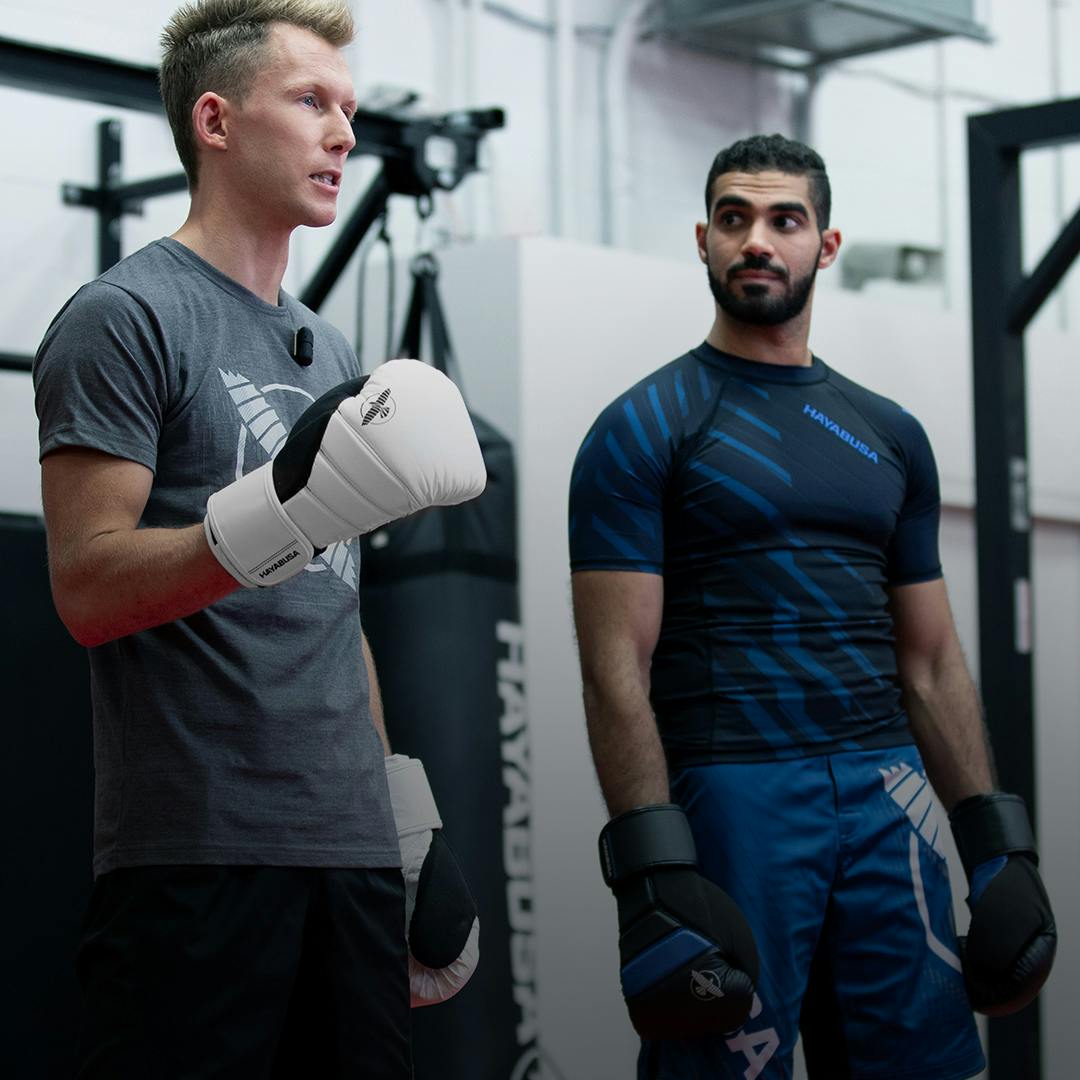
About Gabriel
Gabriel Varga is an impressive martial artist, but we’ll get to that in a moment. We had the opportunity to get to know him better, and our respect simply quadrupled. His knowledge, demeanor, and overall approach to life are inspiring. If you haven’t already, start following him and his journey, even if you’re not into kickboxing, we guarantee you’ll learn something and admire him as much as we do.
Instagram: GabrielVargaOfficial
YouTube: Gabriel Varga
Twitter: GVargaOfficial
Facebook: GabrielVargaOfficial